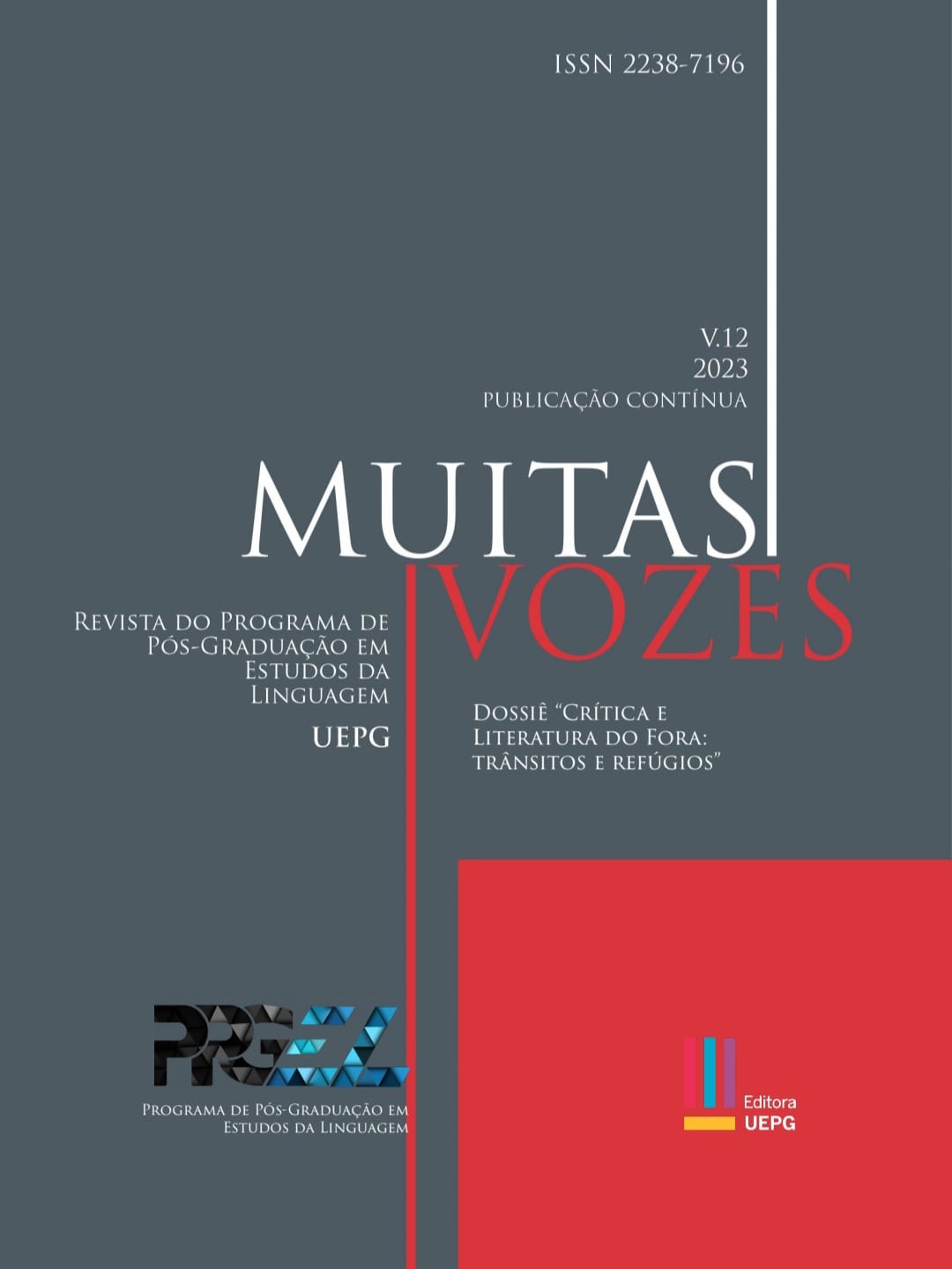DISCURSOS DE/SOBRE UMA PERSONAGEM À DERIVA NO CONTO “AMOR”, DE CLARICE LISPECTOR
Résumé
Silenciamento, invisibilidade, inferioridade, normatização dos corpos e condutas são palavras que atravessam e constituem os discursos que traçaram a história das mulheres, que sempre foram subjetivadas por verdades engendradas historicamente. Verdades que argumentam a partir de seu corpo, sua sexualidade, sua forma de ser e de estar no mundo. Nesse contexto, encontra-se Ana, personagem protagonista mulher do conto “Amor” de Clarice Lispector, a qual, em determinado momento de sua história, passa por uma epifania, ficando à deriva, isto é, no limiar do mundo novo que se apresenta diante dela. Assim, este artigo tem o objetivo de lançar luz sobre essa mulher, convocando, de um lado, os Estudos Discursivos Foucaultianos, notadamente os conceitos de discurso, sujeito e verdade conforme propõe Michel Foucault; de outro, e complementarmente, a perspectiva da literatura fora de si, a partir das discussões de Natalia Brizuela e Florencia Garramuño, de modo a aproximarmos as reflexões em torno de um corpo transgressor que nos leva a considerarmos os limites, meios e extremos presentes desde o final dos anos 60, resultando em uma literatura denominada por Brizuela como “conceitual”. A análise aponta outros possíveis caminhos para se ler a literatura contemporânea, sobretudo a escrita empreendida por mulheres.
Téléchargements
Téléchargements
Publié-e
Comment citer
Numéro
Rubrique
Licence
(c) Tous droits réservés Muitas Vozes 2024

Cette œuvre est sous licence Creative Commons Attribution 4.0 International.

Este obra está licenciado com uma Licença Creative Commons Atribuição 4.0 Internacional.
Transferência de direitos autorais: Caso o artigo submetido seja aprovado para publicação, JÁ FICA ACORDADO QUE o autor AUTORIZA a UEPG a reproduzi-lo e publicá-lo na REVISTA MUITAS VOZES, entendendo-se os termos "reprodução" e "publicação" conforme definição respectivamente dos incisos VI e I do artigo 5° da Lei 9610/98. O ARTIGO poderá ser acessado tanto pela rede mundial de computadores (WWW - Internet), como pela versão impressa, sendo permitidas, A TÍTULO GRATUITO, a consulta e a reprodução de exemplar do ARTIGO para uso próprio de quem a consulta. ESSA autorização de publicação não tem limitação de tempo, FICANDO A UEPG responsável pela manutenção da identificação DO AUTOR do ARTIGO.



